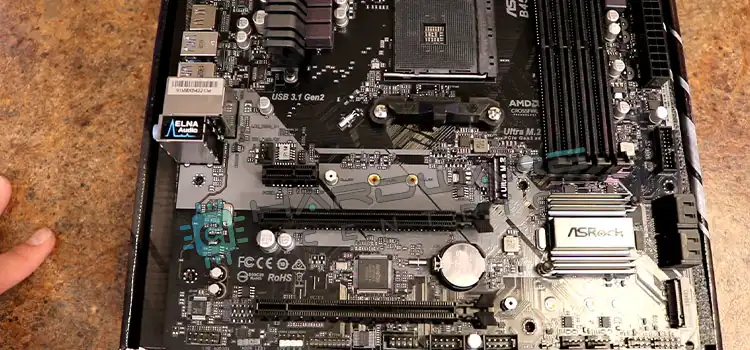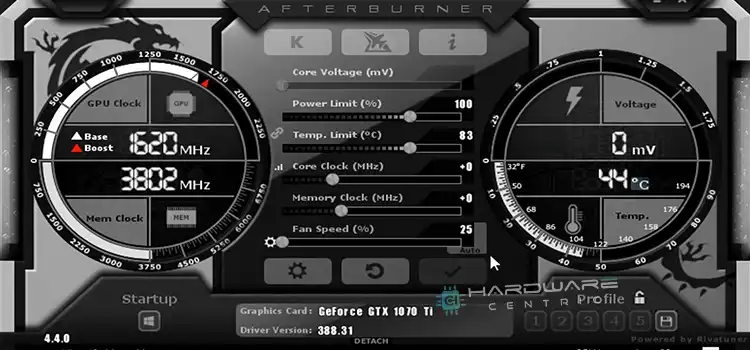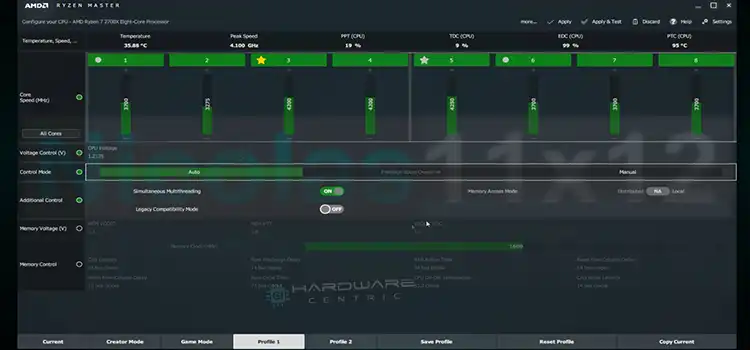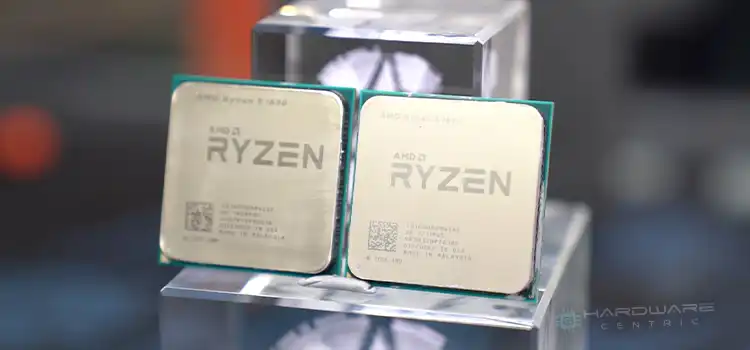Intel 4th Gen i7 vs 6th Gen i7 Processor | Which One Is Better?
Intel core processors are undoubtedly reigning in the processor market by producing better units and maintaining consistency. Here, the 4th gen i7 and 6th gen i7 are both high-performance processors, but the 6th gen i7 is generally faster. This is due to a number of factors, including the newer manufacturing process, the improved architecture, and the higher clock speeds.
To clarify our statement, we will share relevant information regarding these two processors, including their differences. You just need to take a few minutes and read the post till the end. So, let’s begin.
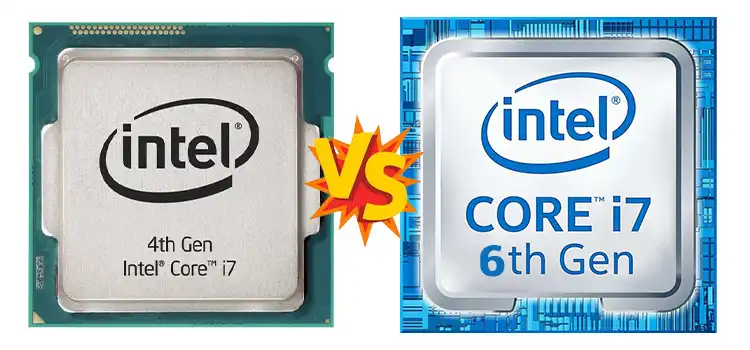
Differences Between 4th Gen i7 and 6th Gen i7
To determine the better one between two things, it’s always a neat trick to compare them with each other and check out their internal differences. Therefore, we’ll start by presenting the comparison table by their specifications and then pointing out the differences. So, without delaying any longer, have a look at the table below –
| Specifications | 6th Gen i7 | 4th Gen i7 |
| Architecture | Skylake | Haswell |
| Release date | Q3’2015 | Q2’2013 |
| Process | 14 nm | 22 nm |
| Bus speed | 8 GT/s DMI3 | 5 GT/s DMI2 |
| Max turbo frequency | 4.2 GHz | 3.9 GHz |
| Max memory | 64 GB | 32 GB |
| DDR type | DDR 4 | DDR 3 |
| Bandwidth | 34.1 GB/s | 25.6 GB/s |
| Graphics integration | Intel HD Graphics 520 or 530 | Intel HD Graphics 4600 |
| USB support | USB 3.0 | USB 3.1 |
| Thunderbolt support | Not natively supported | Thunderbolt 3.0 and 3.1 supported |
| PCIe Gen support | PCIe Gen 3 | PCIe Gen 3 and PCIe Gen 4 (in particular models) |
| Thermal Design Power | 130 Watt | 84 Watt |
When comparing the 4th generation Intel Core i7 processors to the 6th generation Intel Core i7 processors, if you focus on the information given in the table, you can find the following differences (we’re considering some major specifications) –
1. Design Structure
The 4th generation i7 processors are based on the Haswell architecture, while the 6th generation i7 processors are based on the Skylake architecture. The Skylake architecture introduced some improvements over Haswell, such as better power efficiency and increased performance.
2. Performance
Generally, the 6th generation i7 processors offer better performance compared to their 4th generation counterparts. This improvement is due to architectural enhancements and higher clock speeds. However, the actual performance gain may vary depending on the specific models being compared.
3. Clock Rate
The 6th generation i7 processors typically have higher base and turbo clock speeds, which can result in better overall performance. The increase in clock speeds allows for faster processing of tasks, resulting in improved performance in single-threaded applications.
4. Power Efficiency
The 6th generation i7 processors are designed with improved power efficiency, which means they consume less power for the same level of performance compared to the 4th generation i7 processors. This can be beneficial for laptops and other mobile devices where battery life is important.
5. Other Features
The 6th generation i7 processors introduced support for DDR4 type memory, which offers higher bandwidth and improved efficiency than the DDR3 memory supported by the 4th generation i7 processors. Additionally, the 6th generation processors also added support for newer technologies like Thunderbolt 3 and USB 3.1.
Which One Is Better Between 4th Gen i7 and 6th Gen i7?
Overall, the 6th generation i7 processors provide better performance, improved power efficiency, and support for newer technologies compared to the 4th generation i7 processors. If you’re considering purchasing a new system or upgrading an existing one, it would be advisable to go for the 6th generation or a more recent generation to take advantage of the advancements in performance and features.
(FAQs) Frequently Asked Questions and Answers
Is i7 4th Gen outdated?
Yes, it is. The 4th Gen i7 is considerably old as it’s been almost 10 years since Intel released this processor and over time it’ll get more outdated. Moreover, it only supports DDR3 RAM which is noticeably slower than the modern RAMs.
Which core i7 Gen is best?
The 13th Gen (Raptor Lake) is the current best core i7 Gen indeed. It got released in 2023 and is based on a further refinement of the Alder Lake architecture. It offers better performance than its previous generations and introduces several new features, such as support for DDR5-5600 memory and Intel Thread Director. For example – 13th Gen Intel Core i7-13900K.
Conclusion
Thus far, it’s pretty clear that the 6th Gen i7 is certainly better than its competitor 4th Gen. But the best processor suitable for you will depend on your specific needs and budget. If you’re looking for the best possible performance, the 6th gen i7 is the way to go. However, if you’re looking for a more affordable option or a processor with a longer battery life, the 4th gen i7 may be a better choice. Feel free to share your feedback if you find this post useful enough.
Subscribe to our newsletter
& plug into
the world of PC Hardwares
